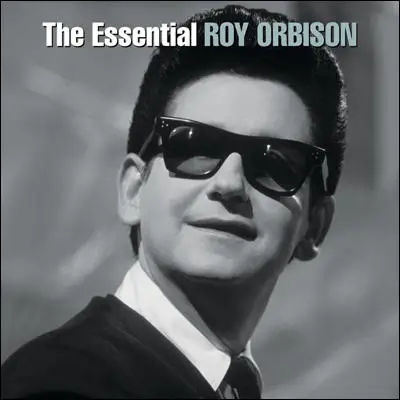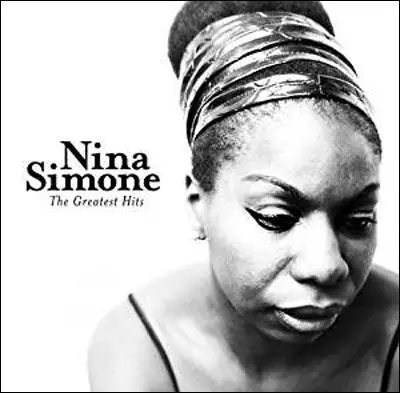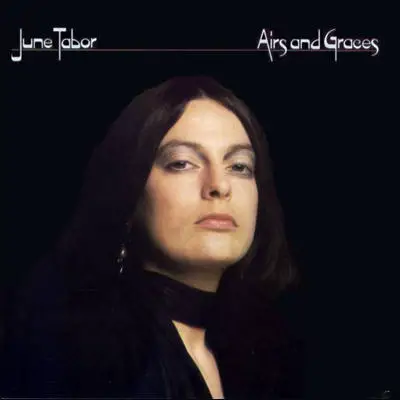Musical Memories of Eddie Walker
I suppose I was no different from any teenager growing up in the ‘60s being subjected to the tidal wave of pop music that started with Bill Haley in the mid ‘50s, followed by Elvis and then carried over to this side of the Atlantic with the Mersey groups and the Rolling Stones.
It's so difficult to choose the one piece of music that would take me back to that time. I was tempted to include Teen Beat by Sandy Nelson, one of my early purchases and which was played until the grooves were nearly worn away. But I'm going to go very romantic and choose for my first record a recording by a big UK star of the time. America didn't have a monopoly on crooners and this song is British, not a cover and it probably sums up my attitude to the female sex at the time – fascinated by them, very scared of them and feeling they should be put on a pedestal and revered! Very naive of me, but I was a callow youth at the time so please forgive me! My first choice is Anthony Newley – If She Should Come To You.
Of course, he, himself, married 4 times, didn't necessarily have this outlook on how women were to be treated but in my idealised world, I thought at the time that he was absolutely right and they needed to be wrapped in cotton wool and worshipped.
My next piece is boring and predictable, but Roy Orbison was one of my all time favourites and I still play his stuff on occasions when I'm feeling old and unloved and need to wallow in nostalgia. This track dates from 1964. I had just left school, started my first job and I was living away from home during the week and travelling home at weekends. I had barely turned 17, never been away before and suffering with terrible home-sickness. Roy Orbison's plight in this song reminded me of my own situation! Roy Orbison – Blue Bayou. Perhaps I wasn't going back to a Caribbean Island but North Buckinghamshire and Milton Keynes was home to me!

About this time I started going to folk clubs and getting into the delights of Bob Dylan, Tom Paxton, Pete Seeger, Ewan MacColl and bellowing out the words of Wild Irish Rover, but my favourite artist at the time was Paul Simon. The Leaves That Are Green is about the passage of time. It starts "I was 21 when I heard this song, I'm 22 now but I won't be for long" – well, I'm 71 now and I really was 21 when I first heard it. Where did those 50 years go?
I sing with the South Downs Folk Singers and revival of the English folk song tradition is often put down to attendances at the various clubs that sprang up in the late ‘60s and early ‘70s- but I doubt it - I see little resemblance between what was being sung in these clubs and the rustic songs about ploughing and chasing fair maidens that seem to make up the bulk of our own folk music in the UK - although Bob Dylan did steal many of the tunes and sometimes the themes of our native folkies. He even attributes one of the tunes on one of his albums to Martin Carthy (accolade indeed!)
Oh, those happy days in the folk clubs! Those were the days, my friend; we thought they'd never end! It's a great shame, but in having to restrict our choices to fifteen pieces of music, inevitably, there are some much loved songs which have to be omitted and one such is Sandy Denny's – Who knows where the Time Goes. If we do this again next year perhaps I can include it!

After my early dalliance with folk music, I became more interested in jazz and particularly Billie Holliday and Nina Simone. For a time Nina Simone was mainstream and her recording of Aint Got No – I Got Life was a popular hit, but I think she cared little for stardom!
Both artists did great things in raising awareness of the colour problem, Billie's Strange Fruit, for example, created a major upset, but I want to play Nina Simone's live recording of Mississippi Goddam you can hear the very uncomfortable (white?) audience reacting to her words. She was a very brave, very feisty lady.
For my fifth record I'm going to play my only Classical piece (if you can call it that) The Classical period only actually only relates to mid 17 th to early 18 th century music and this piece is firmly rooted in 20 th century. I'm not really sure how you would define it - "serious" doesn't sound right, but it's certainly not "pop", so Classical it will have to be.
I had been introduced to Classical music at school. Those of us who were not taking music at GCE level had one music lesson per week. Our teacher knew there was no point in passing on the niceties of musical theory, so he simply played a record of his choice. We were free to listen, to fall asleep, to read, but not allowed to do our homework. So I listened - and it was a revelation to me – I was captivated by Beethoven's 6th Symphony, Brahms Alto Rhapsody, Mozart's Piano Concertos - but he was a traditionalist and played the conventional pieces which he enjoyed and, I have to admit, I did too.
I went on to buy the weekly publication called The Great Musicians which built up to form a collection of 10inch LPs each containing a work by a great composer. The publishers were Italian so there was no place for Elgar or Sibelius or Vaughan Williams, but it included works by Pergolesi and Corelli - though, surprisingly, no Vivaldi. Anyway, suffice to say, my grounding in Classical music was pretty conventional.
Shortly after I was married my wife and I decided to have a trip to the Proms at the Albert Hall as a special treat – it was probably to celebrate our first wedding anniversary, I can't remember. The piece we went to hear was by Brahms, but the work in the first half was Leoš Janáček's Sinfonietta. I was blown away, I had heard nothing like it before and I was immediately smitten, the rhythms, the cadences and being in a live performance, too. There is something about a live performance which cannot be replicated in the recorded sound. It's a cliché, but the hairs on the back of my head stood to attention, and I've always loved Janacek since then. See what you think!
In 1979 I went to work for Milton Keynes Development Corporation whose offices were in a converted country home in a small village called Wavendon within the boundaries of the designated area. Next door, and clearly within hearing distance was the residence of John Dankworth and Cleo Laine who were by now running a residential jazz workshop in their garden which was to become the performance venue called The Stables. With the windows of the offices open during the summer time we could hear the strains of the jazz trumpet and saxophones wafting through the airways. Very uplifting!
So, it would be remiss of me not to include Cleo Laine in my musical memories and I wanted to choose Both Sides Now, not only because I like it, but it's also a Judy Collins song and that would have allowed me to kill two birds with one stone – but, unfortunately it's not on Spotify – what an omission! So I've chosen Sometimes When We Touch this is from an album on which she teamed up with James Galway, that famous flautist with the fluttering eyeballs. How does he do that?

Staying on the theme of female artists and going back to, well, perhaps a crossover between jazz and folk, I'm going to choose a record by June Tabor - Sudden Waves. I haven't got much to say about it except that I like her delivery and the piano accompaniment is lovely.
So far I've been ignoring my love of Blues music but my next record makes up for that. Whilst I do like the electric blues of Howlin' Wolf, B. B. King, Buddy Guy, etc, my real love is for the acoustic delta blues of the Deep South including Robert Johnson, Son House and Charley Patton. It's ironic therefore that I'm going to choose Lightnin' Hopkins - Woke Up This Morning. Ironic because he was born in Texas, but I can't resist this song because of its title – well, it can't be a blues song if it doesn't start with those words.
My next artist is a little obscure. His style is a cross-over from blues to folk and he's from the Washington region of the States. His name is Kelly Joe Phelps and he came to my notice through my son who said he thought I would like his style and he was right. Shortly after I'd played some of his cds, I saw that he was performing in Brighton at the Komedia and I went along to listen to him. I thought he was brilliant and it's a shame he's not better known, but, unfortunately, he had to give up performing because he had a problem in his arm(ulna neuritis) that prevented him from playing his guitar. I haven't heard of him recently so I assume he's still unable to play.
The subject of this song is the reason why I've chosen it. It's the universal theme of relationships. Carl has left home after a row with his wife; he's spending the night in the open air - which isn't a sensible thing to do during winter. He thinks he's being stifled by her. Anita loves him; she's out looking for him. As the cold starts to kick in, he starts to realise that he's been a fool. She finds him and they walk home, nothing's resolved; it's bound to happen again, but, for the time being, they are back together. Real life – so I suppose it must be folk music! Kelly Joe Phelps - Circle Wars.
About this time, I discovered loads of Irish artists. There was a cd brought out in about 1992 called A Woman's Heart that was a collaboration of female singers from Ireland. On it were Mary Black, her sister Frances Black, there was Eleanor McEvoy and Aine Furey and others. It became the biggest selling cd in Irish history. This led me to listen to more Irish singers, some with unpronounceable and unspellable names. I'd like to include many of these artists especially Mary Black but lack of space leads me to omit them. However, I am going to include Dolores Keane – The Island because I'm really taken by the lyrics; there are wars going on in the Middle East, the troubles are happening in Ireland, but hey, life goes on, let's just go to the island and make love. What a great attitude!
Sadly her recording career came to an end due to depression and alcoholism. It seems to be a recurring theme with lots of artists – do they burn themselves out from the relentless pressure of touring?
And I also have to include Loreena McKennitt - Stolen Child. She's a very interesting character; Canadian/Irish, she has a beautiful, clear soprano voice and is influenced by world music, which you can hear in her songs. She was involved in an interesting court case where a previous employee who was also considered to be a friend had written a book about her which Loreena McKennitt felt disclosed personal information and invaded her privacy. She sued and was successful. It is an important human rights story, making the distinction between privacy and secrecy in a celebrity obsessed culture. (I'm quoting, of course!) This particularly beautiful song is a W. B. Yeats poem set to music. My interpretation is that the child is being stolen away to protect it from the rigours and dangers of real life. But it's lovely anyway and I hope you like it.
During the 90s I read about a project carried out by Ry Cooder in Cuba. He had heard of a club in Havana where they played music in the 1950s and he had a hare-brained scheme to get them all back together again. Amazingly he succeeded, and the whole thing was the subject of a cd (of course!) and a documentary film. The story went global and the film is a joyous celebration of music and old-age – it's never too late. If you haven't seen it get it out, it's marvellous and the final scene has you grinning like a bag of chips! So, I've chosen Buena Vista Social Club – Chan Chan.
A friend and colleague when I was at the Environment Agency decided to do something for humanity and went to work in Tanzania with a Government organisation charged with bringing capital projects to fruition. On one of his visits home he brought me a tape compilation which introduced me to the wonderful world of African music.
By the way he met and fell in love with a beautiful Tanzanian girl called Grace, but her parents wouldn't agree to their liaison and his feelings were left unrequited. I suppose you could say he had a taste of what it is like to be racially discriminated against.
Again, there are a whole lot of African musicians that need more exposure over here. There's Baaba Maal, Ali Farka Touré, Rokia Traore, all worth checking out, but I'm going to choose Salif Keita from Mali, notable for his "Golden voice" but also for his albinism, a condition which led him to being ostracised by his family but also to him becoming a crusader for the world albino community. The track I am choosing is called La Difference with which he won an award as the Best World Music in 2010.
Staying with the theme of World Music I'm bringing it a bit closer to home and moving to the backstreets of Lisbon in Portugal BBC4 has music themed evenings and I stumbled upon a fado singer called Mariza. Now I know fado is a bit of an acquired taste, but watching and listening to Mariza is a truly inspiring experience. She is half Portuguese and half Mozambiquan and her family moved to Lisbon when she was 3 years old where she started performing fado because her father thought the traditional style would give her greater acceptance in the Portuguese community. She is tall, blonde, elegant and absolutely gorgeous to look at and her singing is mesmerising. I went to see her at Brighton Dome and she held the audience in the palm of her hand. So I've chosen Mariza singing Transparente - a tribute to her maternal grandmother in the style of fado (which isn't necessarily dirge like and uninspiring!)
I know the session is called Musical Memories but I'm going to cheat for my final choice and I've come bang up to date with a young couple of folk singers who in 2015 were voted Best Newcomers in the BBC2 Folk Awards. As you know, the Ropetackle features an eclectic collection of different genres and it's worth keeping an eye out for the latest offerings. I was pleased that I went to see this couple when they performed there in 2016. Her singing is beautifully controlled and his guitar work is delicate and wistful. Perhaps their songs are slightly melancholic, you are not going to be dancing in the aisles to these, and a whole evening of reflective sadness may be a bit much to take – but I like it.
They recently supported Richard Thompson on his tour of UK - I know Edward went to the concert and he tells me that he wasn't impressed by Josienne's singing. I think he must have heard her on a bad night since she is classically trained and note perfect. Perhaps she had a cold, or perhaps the venue was unsuitable – I think they are more effective in a small setting where they can relate to the audience in a more intimate manner.
It also transpires that Josienne attended Boundstone Community College in Lancing and she was inspired by the teaching of local teacher Aidan Kearney. He has now retired from teaching but is involved in the local music scene with (I think) Worthing Musical Society. I didn't know of her provenance at the time so it didn't influence my response to the quality of their performance - though perhaps it does a little now that I do know it! So my final choice therefore is Josienne Clarke and Ben Walker – Anyone But Me.
That is my final selection as of now. If I did it again tomorrow it would be a different selection, there could be more pop style music, I've missed out most of the 80s stuff I was listening to; Eurythmics, OMD, Toto, REM, Dire Straits, not to mention the 70s - Simon and Garfunkel, Kate Bush, Van the Man, and the 60s, Everley Bros, Buddy Holly, T-Rex, even Elvis!. And I might even include some Sibelius just for Ron!
